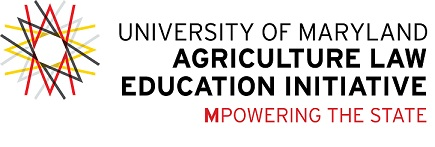
The annual Agricultural and Environmental Law Conference moved its 2020 edition to a free series of online webinars held on three consecutive Mondays last month due to the pandemic. Nearly 300 people registered for the virtual event, including university faculty and staff, agricultural service providers, representatives from environmental organizations, state officials, attorneys and farmers.
“We were glad that we were still able to provide an engaging and informative conference again this year in spite of several hurdles,” said Nicole Cook, environmental and agricultural faculty legal specialist with UMES Extension. “The unwelcomed shift to having an entirely virtual conference actually has made us rethink how we might offer the conference in the future to make it accessible to more people and to provide increased opportunities for having a broader range of presenters.”
This year, she said, participants hailed from 15 states, the District of Columbia, Puerto Rico and Trinidad and Tobago. Eighty-eight percent of those who completed an exit survey rated the conference good to excellent and felt it served its purpose of increasing their knowledge of environmental and/or agricultural legal issues.
Rightfully so, the conference began on November 2 with a session focusing on the impact of COVID-19 on Maryland’s dairy industry and how farmers managed the risks to their dairy farms. Speakers from the Cow Comfort Inn Dairy and Creamery in Union Bridge, Maryland; Deliteful Dairy in Williamsport, Maryland; and the Maryland and Virginia Milk Producers Cooperative Association shared their experiences as farmers and industry representatives navigating supply chain disruptions, loss of or changing markets, worker issues, insurance and disaster relief programs.
“Farmers are busy in the best of times, but their insights and perspectives are vital to the educational work that ALEI does so we always strive to include them on our panels,” Cook said. “I’m grateful to our dairy farmers for taking time out to share their expertise, especially now when they are dealing with so many unexpected changes impacting their farms, their families and their communities.”
Also on the first day of the conference, representatives from the Delmarva Chicken Association (formerly Delmarva Poultry Industry), the Keith Campbell Foundation for the Environment and the Maryland Department of the Environment reported on the status of their joint project to monitor air emissions from poultry houses. They also discussed the most recent air quality monitoring results and subsequent potential steps to take in the future.
The second session, November 9, focused on the Chesapeake Bay and recent developments in its restoration. Hot topics included the lawsuit filed against the U.S. Environmental Protection Agency to enforce clean-up efforts for all the states in the bay’s watershed and the Conowingo Dam settlement, Cook said. Also on the subject of water quality was the November 16 session on the Clean Water Act Waters of the United States rule.
The conference concluded with a panel on current issues in agricultural and environmental law and those to be aware of for 2021. Speakers were from the University of Maryland and the National Sustainable Ag Coalition.
Gail Stephens, agricultural communications and media associate, School of Agricultural & Natural Sciences, University of Maryland Eastern Shore, 410-621-3850, gcstephens@umes.edu.

